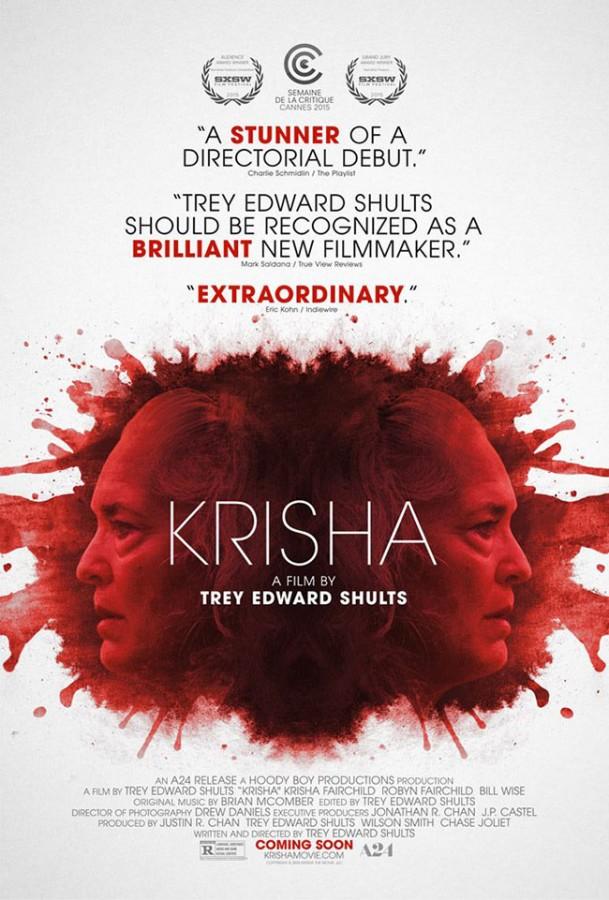Visually Stunning “Krisha” Only Tells a Hackneyed Story
Director Trey Edward Shults presents his new film “Krisha”, a story of addiction and family turmoil.
March 24, 2016
In his debut film “Krisha,” director Trey Edward Shults attempts to tell a tale of addiction and family turmoil, but ultimately falls short in his execution.
The film’s star is actress Krisha Fairchild, Shults’ actual aunt, who plays the role of Krisha, a recovering addict. The object of her addiction is left ambiguous. In fact, a lot of the backstory is left untold. It is less important to the director that the audience knows the complete backstory than it is that they feel and absorb the tension surging throughout the house during Thanksgiving.
The dinner at Krisha’s sister Robyn’s (Robyn Fairchild) house is the first time in years that Krisha has visited her relatives. While the family members all put on a happy face and pretend to be excited to see her, they exude an air of discomfort. To the family, Krisha is a ticking time bomb just waiting to go off. Their hesitancy is proven to be justified, as Krisha ultimately crumbles after failing to mend her relationship with her estranged son, Trey (Shults), who it’s assumed she lost custody of due to her addiction.
Shults managed to adapt to a low budget by starring in his own film, using family members to portray key roles (Robyn Fairchild is related to Shults as well) and by filming in his mother’s actual home. In an interview with NPR, Shults said he always knew that he was going to cast his aunt Krisha in his first film. While the casting choice is interesting and creates natural discourse, it was not enough to save the film.
The dysfunctional family is front and center of “Krisha.” Shults experiments with psychedelic visuals and disquieting music and sounds in attempt to portray this family situation through the eyes of an addict. The concepts are engaging on paper, but they fail on screen. The visuals and sound provide for a particularly unnerving viewing experience, and establish the anxiety felt by Krisha, but it seems as though Shults dedicated so much time to the aesthetic that he forgot to throw together a real plot.
Krisha is a recovering addict who comes home to try and seek redemption from her family, but instead confounds the situation with her reappearance. That’s it. The film doesn’t take any interesting or original angles with the story, and the ending is predictable five minutes into the movie.
The tales of the dysfunctional family are horribly overdone, and the film’s director makes little effort to be creative with tropes. Though it is a good attempt at a first film, Shults needs time to find his cinematic voice.
“Krisha” is now playing at Landmark Sunshine Cinema.
Email Dejarelle Gaines at [email protected].



























































































































































